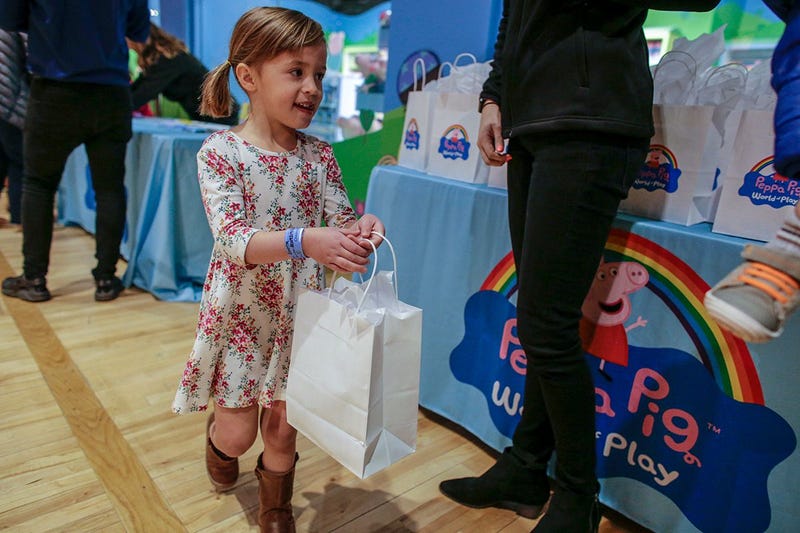
Children in the U.S. have picked up British accents during the pandemic, parents say, because of how characters on the animated British preschool show “Peppa Pig” speak.
California parents Matias Cavallin and his wife were stunned when their kindergartner began referring to them using English pronunciations of mom and dad.
Listen to your favorite News/Talk station now on Audacy.
“Mummy, are you going to the optician?” 5-year-old Dani asked.
“And we were like, ‘the what?’” Dani’s father told the Wall Street Journal. “That’s like a college-level word ... At least, I wasn’t using it.”
Dani also prefers to refer to gas stations as ‘petrol stations,’ and cookies as ‘biscuits.’ Whenever her father drinks coffee, she assumes it’s tea.
The Cavallins aren’t alone. As children across the country have binge-watched hours of the animated piglet during the pandemic, they’ve developed British vocabularies and accents portrayed by the cartoon.
It’s not the first time. American parents reported the “Peppa effect” back in early 2019, claiming children were talking like Brits because of the show, the Evening Standard reported. But because of the time spent at home during the pandemic, the effect on American children’s language development has reemerged.
“My 5-year-old niece in NYC had an American accent before the pandemic,” WSJ reporter Preetika Rana tweeted last month. “Now she has a posh English accent after spending a year at home watching Peppa Pig.”
The show has aired nearly 330 episodes in its seven seasons since 2004. According to Parrot Analytics, it is the second most popular children’s cartoon in the world, second only to SpongeBob Square Pants.


